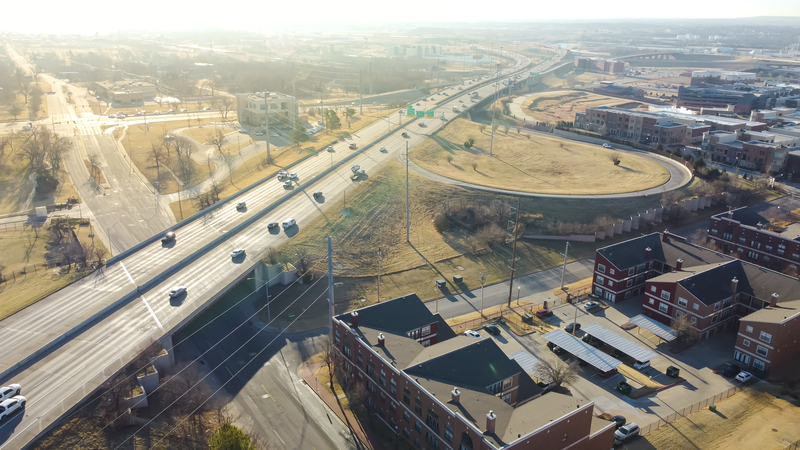Oklahoma Turnpike (OTA) is in discussion with Kansas Turnpike and North Texas Tollway (NTTA) on the viability of electronic interoperability between the three companies. It is close to agreement with North Texas Tollway and billing of each other’s customers should be in operation by the spring or summer of 2014. Discussions with the Kansas Turnpike are a little further behind and interoperability is likely to happen by the second half of 2014. Director of operations at the OTA, David Machamer, says much o
Oklahoma Turnpike (OTA) is in discussion with Kansas Turnpike and North Texas Tollway (2082 NTTA) on the viability of electronic interoperability between the three companies. It is close to agreement with North Texas Tollway and billing of each other’s customers should be in operation by the spring or summer of 2014. Discussions with the Kansas Turnpike are a little further behind and interoperability is likely to happen by the second half of 2014.
Director of operations at the OTA, David Machamer, says much of the work on the legal agreement and business rules for NTTA-OTA interoperability has been accomplished so they are close to going for formal board of directors approval.
There are few hardware issues. Both have E6 multiprotocol readers from139 Transcore, as does Kansas Turnpike with its K-TAG brand.
The Oklahoma Turnpike system covers large proportion of the state's expressway standard highways, one a designated interstate but most important state routes. Comprising ten tollroads some urban, others interurban the state turnpike system covers 605 centerline miles, about 1,000km. Toll collection is a mix of electronic toll, and cash toll lanes in an approximate 65/35 ratio.
NTTA is an entirely urban system with three major busy tollroads, two toll bridges and small toll tunnel. It has no cash toll collection, 77 per cent being by electronic toll transponder and 23 per cent by video toll.
Machamer says interoperability with Kansas Turnpike to their immediate north should not be long after the NTTA arrangements go live.
Director of operations at the OTA, David Machamer, says much of the work on the legal agreement and business rules for NTTA-OTA interoperability has been accomplished so they are close to going for formal board of directors approval.
There are few hardware issues. Both have E6 multiprotocol readers from
The Oklahoma Turnpike system covers large proportion of the state's expressway standard highways, one a designated interstate but most important state routes. Comprising ten tollroads some urban, others interurban the state turnpike system covers 605 centerline miles, about 1,000km. Toll collection is a mix of electronic toll, and cash toll lanes in an approximate 65/35 ratio.
NTTA is an entirely urban system with three major busy tollroads, two toll bridges and small toll tunnel. It has no cash toll collection, 77 per cent being by electronic toll transponder and 23 per cent by video toll.
Machamer says interoperability with Kansas Turnpike to their immediate north should not be long after the NTTA arrangements go live.










